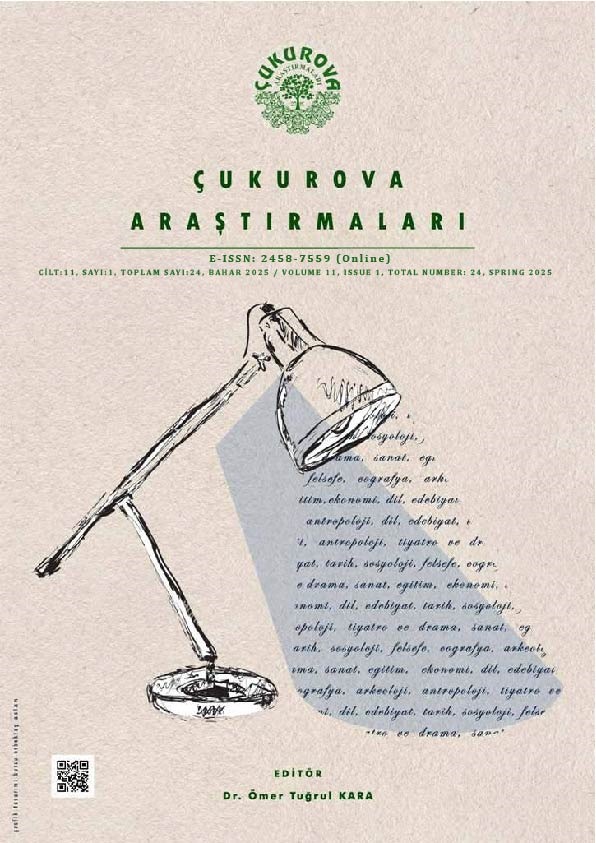Author :
Abstract
Son yarım asırda bilgi ve teknoloji alanlarında yaşanan hızlı gelişmeler, dünya genelinde eğitim faaliyetlerinin yönünü ve niteliğini değiştirmektedir. Türk eğitim sistemi de yaşanan gelişmelere duyarsız kalmayarak 2024 yılında yeni bir eğitim modeli ortaya koymuştur. Bu araştırmada yakın zamanda ortaya konulan “Türkiye Yüzyılı Maarif Modeli”nin değer eğitimi açısından analiz edilmesi amaçlanmıştır. Araştırmada bu amaçla “Türkiye Yüzyılı Maarif Modeli Öğretim Programları Ortak Metni” nitel araştırma yöntemlerinden biri olan doküman analizi yöntemiyle incelenmiştir. Çalışmada bu çerçevede Maarif Modelinin değerler eğitimi anlayışını temellendiren “Erdem-Değer-Eylem Çerçevesi (EDE)” ve belirli değerler üzerinden tanımlanan “Yetkin ve Erdemli İnsan Profili” kapsamlı bir şekilde ortaya konulmuştur. EDE çerçevesinde 20 temel değer altında 71 ilişkili değer ve tutumla ilgili eylemin geliştirilmesi amaçlanmıştır. Programda EDE çerçevesiyle huzurlu insan, huzurlu aile ve toplum ile yaşanabilir çevreye ulaşılması hedeflenmiştir. Yetkin ve erdemli insan profilinin temel özelliklerinin önemli bir kısmının küresel düzeyde geliştirilmesi hedeflenen tutum, değer ve becerilerle benzer olduğu ancak bu profilin ortaya konulmasında milli, manevi ve kültürel değerlerin de önemli bir yer edindiği gözlemlenmiştir. Araştırmada Maarif Modelinin bireyin değer ve ahlaki gelişiminde bütüncül bir değer yaklaşımını benimsediği bu nedenle değer aktarmacı ve değer geliştirmeci yaklaşımlardan birlikte yararlandığı görülmüştür. Çalışmada bireyin ahlaki ve değer gelişiminin öğretim programlarının ortak hedefi haline getirmesinin olabilecek etkileri üzerinde tartışılmıştır. Aynı zamanda araştırmada literatürde belirli değerler üzerinde temellenen değer eğitimi yaklaşımlarına yapılan bazı eleştiriler ortaya konulmuştur.
Keywords
Abstract
Rapid developments in the fields of information and technology in the last half century are changing the direction and quality of educational activities around the world. The Turkish education system did not remain indifferent to these developments and introduced a new education model in 2024. In this research, the aim is to analyze the recently introduced "Türkiye Century Education (Maarif) Model" in terms of values education. For this purpose, the "Turkish Century Education Model Curriculum Common Text" was examined using the document analysis method, one of the qualitative research methods. In the study, the "Virtue-Value-Action (VVA) Framework", which forms the foundation of the Maarif Model's understanding of values education, and the "Competent and Virtuous Person Profile" defined through certain values, are comprehensively presented. Within the framework of VVA, the goal is to develop actions related to 71 associated values and attitudes under 20 basic values. The program aims to achieve peaceful individuals, peaceful families and society, and a livable environment within the framework of VVA. It has been observed that a significant portion of the basic characteristics of a competent and virtuous person are similar to the attitudes, values and skills that are aimed to be developed at the global level, but national, spiritual and cultural values also have an important place in this profile. In the research, it was found that the Education Model adopts a holistic value approach in the value and moral development of the individual, therefore it benefits from both value transferring and value developing approaches together. In the study, the possible effects of making the moral and value development of the individual the common goal of the curriculum were discussed. Additionally, the research revealed criticisms of value education approaches based on certain values in the literature.





